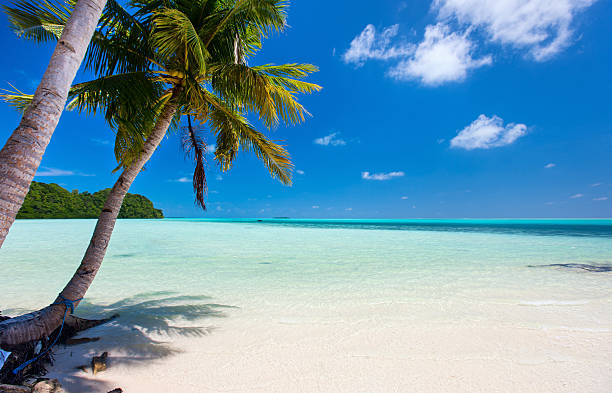If you visit beaches or swimming pools in Palau, you will notice lifeguards on duty ensuring the safety of swimmers and visitors. The lifeguard’s essential duty is to prevent accidents and respond swiftly during emergencies, which requires specialized training. Lifeguard training in Palau serves this vital role—preparing individuals to protect swimmers across beaches, lagoons, waterparks, and hotel pools.
Palau, an island nation in the western Pacific Ocean, is renowned for its crystal-clear waters, coral reefs, and beautiful beaches. Swimming, snorkeling, and diving are everyday activities for both locals and tourists. This thriving aquatic environment makes trained lifeguards essential for ensuring water safety across the islands.
Lifeguards in Palau are responsible for maintaining safety at beaches, resorts, marine sanctuaries, and recreation centers. With tourism being a key part of the economy, professional lifeguards play a critical role in protecting visitors at popular sites like Koror, Babeldaob, and the Rock Islands.
Lifeguard training in Palau through the American Lifeguard Association (ALA) is the first step toward a professional aquatic safety career. Once certified, candidates are qualified to work in hotels, private resorts, and diving centers across the islands.
With more than 30 years of experience, the American Lifeguard Association provides globally recognized training and certification. This ensures that lifeguards in Palau meet international standards of professionalism and emergency readiness.
The American Lifeguard Association (ALA) is supported by Global Lifeguards and the Swimming Pool and Spa Foundation, both nonprofit organizations dedicated to drowning prevention and aquatic safety improvement worldwide.
ALA’s mission is to create safer swimming environments by working closely with employers and safety agencies across the world. It provides standardized training to lifeguards and helps build strong safety protocols.
ALA’s standards are recognized by global organizations, including:
Training also aligns with the Model Aquatic Health Code (MAHC) for professional pre-service and in-service training programs.
Requirements for Lifeguard Training in Palau
To enroll in the American Lifeguard Association’s lifeguard training course in Palau, candidates must meet the following requirements:
Upon successful completion, participants receive:
Lifeguarding in Palau can lead to a lifelong career in aquatic safety. With the country’s booming tourism and water-based recreation industry, trained lifeguards are in constant demand at resorts, diving centers, and marine parks.
Certified lifeguards can advance to:
These roles offer higher responsibility, salary growth, and the opportunity to make a meaningful impact in public safety.

During ALA lifeguard training, participants gain essential lifesaving, rescue, and medical response skills that prepare them for real-world emergencies.
Would you like to read about: Lifeguard Training in Indonesia
Famous Palauan Beaches Where Lifeguards Are Essential
A beautiful family-friendly beach with calm waters where trained lifeguards ensure swimmer safety.
A favorite among locals and tourists, known for its shallow, clear waters—perfect for swimming under lifeguard watch.
Located near a famous diving site, this private island resort employs certified lifeguards for guest safety.
A popular snorkeling and diving destination surrounded by coral reefs, monitored by professional lifeguards.
A UNESCO World Heritage site attracting thousands of visitors, with ALA-trained lifeguards patrolling key areas.
Adventure location for divers and swimmers—lifeguards ensure safe exploration of the underwater caves.
A bustling marine zone with mixed recreational use, requiring constant lifeguard surveillance.
The main goal of lifeguard training in Palau is to create skilled professionals capable of ensuring water safety across beaches, resorts, and marine environments. Lifeguards play a critical role in saving lives and promoting responsible aquatic recreation.
The American Lifeguard Association (ALA) stands as one of the most trusted aquatic safety organizations globally. With more than three decades of expertise, ALA continues to uphold a strict code of ethics, professionalism, and international standards.
If you are searching for “lifeguard training near me” in Palau, the American Lifeguard Association is your best choice. Enroll today to begin your journey toward a respected and rewarding aquatic safety career.
Here are some frequently asked questions about the Lifeguard Training program you can find more on our FAQ page if you don’t feel free to send us your questions on our contact us page
Candidates must swim 300 yards continuously and complete a rescue test within 1 minute and 40 seconds.
Graduates can work at resorts, beaches, diving centers, hotels, and marine parks across the islands.
Yes, ALA courses are conducted throughout the year, especially in tourist-heavy areas like Koror and Babeldaob.
You can register directly through the American Lifeguard Association’s official website or authorized training partners in Palau.
It equips individuals with rescue, CPR, and First Aid skills to ensure swimmer safety across Palau’s beaches and resorts.
Anyone aged 15 years or older with good swimming ability can enroll in the ALA lifeguard certification course.
Yes, American Lifeguard Association (ALA) certification is valid worldwide and highly respected by employers.
The program typically takes 2–3 days, covering theory, water rescue skills, CPR, and First Aid.
The American Lifeguard Association has been approved for the Capital One Affiliate Program! for Tuition Assistance Loan
To stay updated with our special offers, subscribe to our weekly newsletter. We will not share your information with any third party.
8300 Boone Blvd 5th Floor Vienna, VA 22182
703-761-6750
Media Contact
703-856-8901
alalifeguard@aol.com